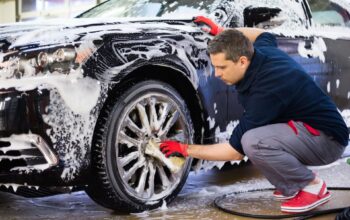Having an illness or disability is a difficult situation to deal with, but there are ways that you can help change the lives of disabled people. These include volunteering and advocating change.
Advocating for change
Taking the steps to advocate for change in the lives of disabled people is crucial. There has been a lot of progress made in the area of disability rights, particularly in the areas of community inclusion, supported employment, and disability-related legislation. There are still many challenges.
In order to be an effective advocate, it is important to understand what you want and need to be able to achieve that goal. It is also important to practice your skills in communicating and explaining your needs. This can include talking about your disability and how it affects your everyday life. It is important to partner with organizations that advocate for people with disabilities if you want to improve your skills. These organizations can also provide practice sessions and guidance.
A good example of an organization that advocates for change in the lives of disabled people is ADAPT. This organization works to empower individuals with disabilities through economic power, political participation and equal opportunity. They offer training and research on disability-related topics. They also run advocacy and public education campaigns.
The National Disability Rights Network is another example. This organization is one of the largest providers of legally-based advocacy services in the U.S. They provide legal information, tips, and suggestions to help you advocate on behalf of change. They also provide fact sheets on key issues in the disability community. They also provide updates on advocacy work.
Another organization that advocates for change in the lives of people with disabilities is the Self-Advocacy Association of New York State, Inc. This organization is run by people with developmental disabilities. It offers membership, conferences, resources and support on the UN System as well as advocacy work.
Bronx Independent Living Services, a non-profit organization, advocates for social change. They offer skills development and resources to help disabled people live more independent lives. They also help to remove barriers and foster a sense of belonging.
The Staten Island Center for Independent Living is another organization that advocates for people with disabilities. This organization is the only comprehensive multi-service provider in the borough. They provide education, independent living, skills development, and access to resources.
Volunteering
Volunteering can be a great way for you to meet new people and give back to your community. Volunteering also teaches you new skills and makes you feel good about yourself. Volunteering can make a difference in the lives of people with disabilities.
Volunteering can also have an impact on your health. A study found that volunteering reduces stress, which can reduce the risk of many diseases and health problems. Volunteers had lower rates of stroke and heart disease, for example. Volunteering is associated with a lower risk of anxiety, depression, and heart disease.
While volunteering, you may also need support to meet your health needs. Fortunately, there are a few organizations that can provide assistance. Among them, Easter Seals Project ACTION helps people with disabilities and transportation communities collaborate. The organization is a national technical assistance program that is designed to improve accessibility and increase access to mass transit.
You might be interested in volunteering with the United Way. They have many programs in your area. For example, their Disabilities Service Initiative offers resources and training to improve access to employment for people with disabilities. They also have an online tool to help you find an organization that meets your needs.
Another good resource is the Best Buddies program. It provides training on how to communicate in an accessible way. Similarly, the Easter Seals Project ACTION program has a website and mobile app that allows people with disabilities and the able-bodied to share the experience of volunteerism.
For more information about volunteerism, visit the Research and Training Center on Community Living at the University of Minnesota. They also have a Training Manual for Working With Youth Volunteers with Disabilities.
Volunteering is a great way to meet new people. Some people will find the perfect volunteer opportunity immediately, while others may need to explore different organizations. Volunteer opportunities that bring together people from different backgrounds and personalities are often the best. Volunteers can learn life skills like how to use assistive technologies or how to play well in a team.
Finding new things that make you feel good about yourself
Having a disability can be a handicap, but it doesn’t have to mean you’re not a person. Learning to play to the rules and resetting your wits can go a long way to achieving a state of equanimity. One of the best ways to do this is to learn the art of dealing with other people. This is especially important when it comes to family members, neighbors and coworkers. Having a supportive network is crucial to making the most of your days, weeks and months. There are many ways to do this, including setting and maintaining a positive work and home environment. Having an outlet for unfiltered thoughts and emotions can be the difference between a productive and dissatisfying day at the office and a tense night on the town. Having a support network can also mean having someone you can turn to for help when the going gets tough. If you’re lucky, you may even find yourself a lifelong friend. A good friend can make the long day seem like a walk in a park. It’s not always easy to make friends, but it’s worth the effort. It’s not fair to anyone to live in a world that doesn’t allow them to help others. This is especially true when it comes to dealing with your own misbehaving family members. Fortunately, there are a number of proven and effective ways to reclaim the mantle of a dysfunctional household.
Setting realistic goals
Whether you are a person with a disability services Melbourne or you are an employer, it is important to set realistic goals. By setting realistic goals, you are giving yourself a sense of direction and motivation. Then you can work toward a more sustainable way of life.
You are more likely to succeed if you set realistic goals. This helps you to boost your self-esteem and increase your productivity. It also gives you a sense of accomplishment.
Aside from your own goals, you can set goals for others. You can improve your community by volunteering and becoming an advocate to help disabled people.
Knowing your limits is the best way to set realistic goals. If you try to do more than you can do, you will be disappointed. Also, you can set a time limit that will help you meet your goals. You will feel more stress and anxiety if you set too high a goal.
People set unrealistic goals because they don’t do enough. They are too busy in their daily lives. To make it easier to achieve a large goal, you can break it down into smaller goals. This way, you can reach the larger goal with more motivation.
A sense of direction is also a key to finding your place in the world. This can be hard. You may feel like you don’t belong, or that you’re useless. However, you can become an advocate for yourself. You can do this by sharing your challenges with others and helping them. You can also take part in new hobbies and activities.
You must be honest about your capabilities and emotional state if you want to set realistic goals. You must also take into account the resources you have available.
It is important to set both short-term and longer-term goals. This will allow you to track your progress on a weekly basis. Recognize your accomplishments more often. The more you acknowledge your goals, the more you will be motivated.
You can also use adaptive devices and adaptive tools to reduce the impact of your disability. This will also reduce isolation.




